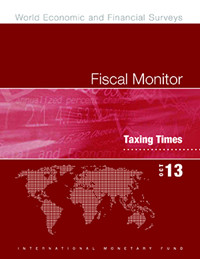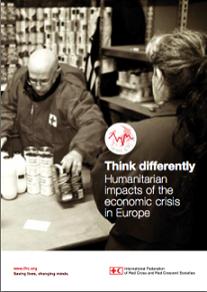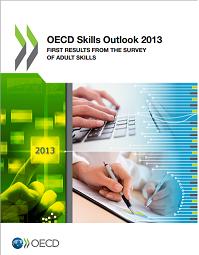Grabbe, H. and Lehne, S., (2013), “The 2014 European elections: Why a partisan Commission president would be bad for the EU”, Centre for European Reform, 14 Οκτώβρίου. The EU urgently needs measures to improve its democratic legitimacy and the decisions taken in its institutions. But the most prominent proposal touted in Brussels as the solution to the democratic deficit could make the problems worse rather than better. The idea is …Read More
Fiscal Monitor 2013: Taxing Times
IMF, (2013), Fiscal Monitor 2013: Taxing Times, Washington D.C.: International Monetary Fund. Persistently high debt ratios in advanced economies and emerging fragilities in the developing world cast clouds on the global fiscal landscape. In advanced economies, with narrowing budget deficits, the average public debt ratio is expected to stabilize in 2013–14—but it will be at a historic peak. At the same time, fiscal vulnerabilities are on the rise in emerging …Read More
Europe’s Choice: Risk Stagnation or Pursue Integration
Shafik, N., (2013), “Europe’s Choice: Risk Stagnation or Pursue Integration”, iMFdirect Blog, 11 Οκτωβρίου. Europe faces a stark choice: risk stagnation or pursue integration. It can continue to muddle through, and hope that growth in the world economy will eventually pick up enough steam to pull its economy out of the doldrums. Or it can make a decisive push to revitalize its economy and complete the reforms needed to achieve …Read More
Think differently: Humanitarian impacts of the economic crisis in Europe
IFRC, (2013), Think differently: Humanitarian impacts of the economic crisis in Europe, Geneva: International Federation of Red Cross and Red Crescent Societies. During the first half of 2013, the International Federation of Red Cross and Red Crescent Societies (IFRC) carried out a mapping exercise across the 52 National Red Cross and Red Crescent Societies in Europe and Central Asia (IFRC Europe zone). 42 National Societies responded and this report is …Read More
Eurozone fails to cheer recovery
Steen, M., (2013), “Eurozone fails to cheer recovery”, The Financial Times, 10 Οκτωβρίου. Why is no one cheering? Technically, the eurozone exited its 18-month recession in the second quarter and is back on the path to growth. Yet its supporters – and critics – have remained silent. Mario Draghi, president of the European Central Bank, may have the answer. “I see a recovery that is weak, that is uneven, that …Read More
OECD Skills Outlook 2013
OECD, (2013), OECD Skills Outlook 2013: First results from the survey of adult skills, Paris: OECD. Key Findings of the Survey Progress across generations Some countries have made impressive progress over recent decades in equipping more people with better literacy and numeracy skills. Young Koreans, for example, are outperformed only by their Japanese peers, while Korea’s 55 to 64 year-olds are among the three lowest-performing groups of this age. Older …Read More
Atypical forms of employment contracts in times of crisis – Working time reforms in times of crisis
Lang, C., Schömann, I. and Clauwaert, S., (2013), “Atypical forms of employment contracts in times of crisis”, European Trade Union Institute, Working Paper 2013.03. This working paper builds on previous research undertaken by the ETUI on the impact of the economic and financial crisis on labour law reforms in EU Member States. It maps the landscape and evolutions in the regulation of atypical employment contracts, analysing how some of these …Read More
The Myth of German Euroskepticism
Gros, D., (2013), “The Myth of German Euroskepticism”, Project Syndicate, 09 Οκτωβρίου. For example, a recent briefing note by Open Europe claims that German citizens tend to trust the European Parliament less than their national parliament and detects a trend of declining German trust in EU institutions since the start of the crisis. Similarly, a commentary by the European Council on Foreign Relations states: “Trust in the EU has plummeted …Read More
Crisis over in the eurozone? Not in the real world
Traynor, I., (2013), “Crisis over in the eurozone? Not in the real world”, The Guardian, 09 Οκτωβρίου. According to the detailed study being released on Thursday by the International Federation of Red Cross and Red Crescent Societies: “The long-term consequences of this crisis have yet to surface. The problems caused will be felt for decades … The economic crisis is creating the conditions for a widespread social crisis, whereby a …Read More
World Economic Outlook
IMF, (2013), World Economic Outlook, Washington DC : International Monetary Global economic prospects have improved again, but the bumpy recovery and skewed macroeconomic policy mix in advanced economies are complicating policymaking in emerging market economies. Chapter 3 examines the prospects for inflation, particularly because inflation was remarkably stable in the wake of the Great Recession and, in fact, has become less responsive to cyclical conditions. Chapter 4 examines whether today’s …Read More







